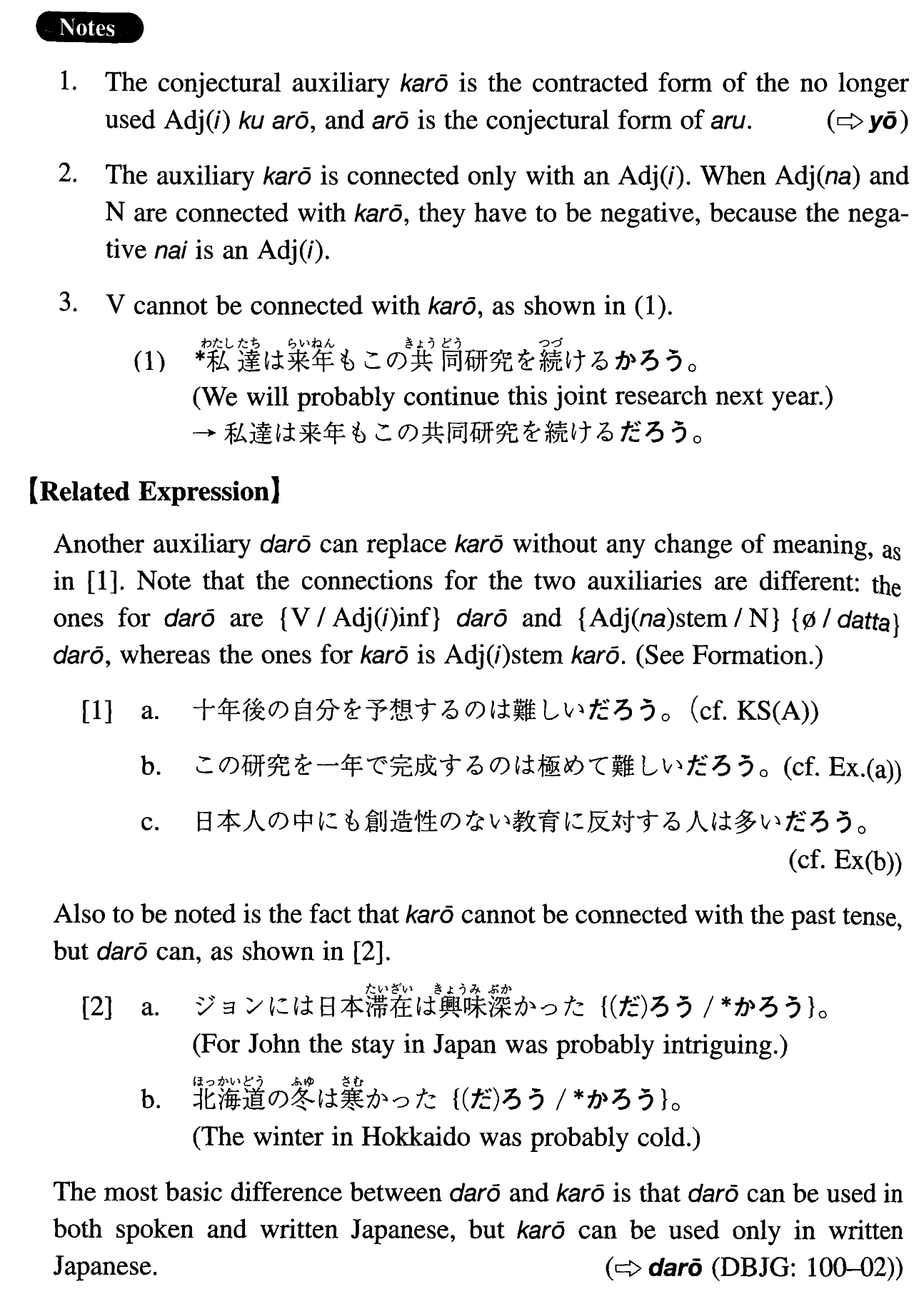
Example sentences
Formation
| (i) Adjective い stem | かろう | |
| 面白かろう | Someone/something is probably interesting | |
| よかろう | Someone/something is probably good | |
| なかろう | Someone/something does not probably exist | |
| (ii) {Adjective い stem く (は)/Adjective な stem/Noun} | なかろう | |
| 面白く(は)なかろう | Someone/something is probably not interesting | |
| 困難ではなかろう | Something is probably not hard | |
| 学者ではなかろう | Someone is probably not a scholar |
